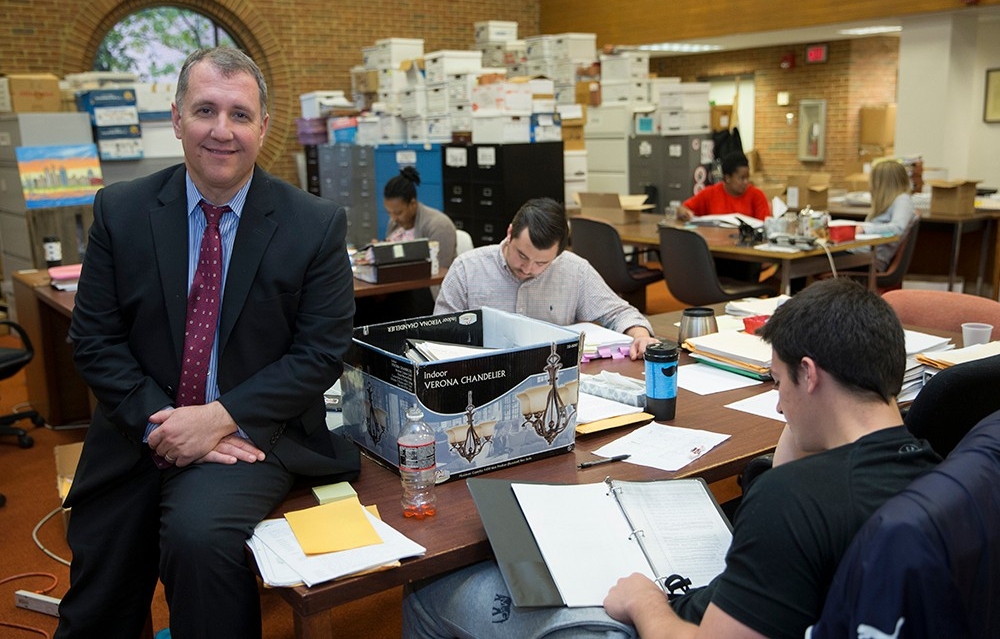Mark Godsey, founder and director of the Ohio Innocence Project at the UC College of Law, shown here working with second year law students on wrongful conviction cases.
UC law professor's new book exposes wrongful convictions
University of Cincinnati's Ohio Innocence Project founder Mark Godsey’s new book “Blind Injustice” sheds light on a criminal justice system that sends far too many innocent people to prison.
The Ohio Innocence Project at the University of Cincinnati College of Law launched in 2003 with the goal of using scientific advances to determine the innocence of inmates who claim they were wrongly convicted.
It’s since become one of the most active and successful innocence projects worldwide, having freed two dozen wrongly convicted inmates from Ohio prisons who together had served more than 450 years for crimes they did not commit.
UC College of Law Professor Mark Godsey details the organization’s triumphs, along with the challenges, psychology and politics that lead to wrongful convictions, in his new book, “Blind Injustice: A Former Prosecutor Exposes the Psychology and Politics of Wrongful Convictions.”
Godsey, the co-founder and director of the OIP in UC’s Lois and Richard Rosenthal Institute for Justice, hopes the work will shed light on a system he says is stacked against defendants who don’t stand a chance if police, prosecutors or judges have what he refers to as “tunnel vision,” a premature conclusion of guilt.
“The discovery of hundreds if not thousands of wrongful convictions in the past 25 years should be viewed by the criminal justice system as indicative of a disaster,” writes Godsey. “A mass disaster.”
He should know. A former federal prosecutor, Godsey says he views his book as both a memoir and a confessional.
“I look back, and I see that I did things that I don’t agree with now,” he told UC Magazine earlier this year. “I would love it if prosecutors and police officers read this book. It is not an attack on them. We take certain roles, and we lose our humanity in the process. I did that myself.”
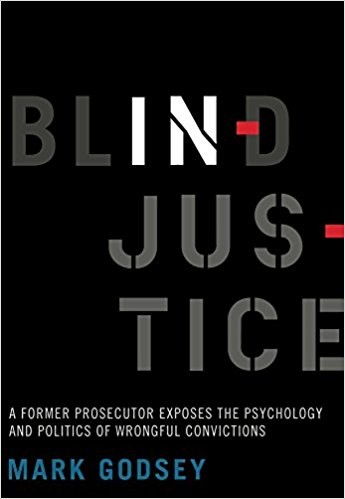
Mark Godsey's new book is set to publish Oct. 10.
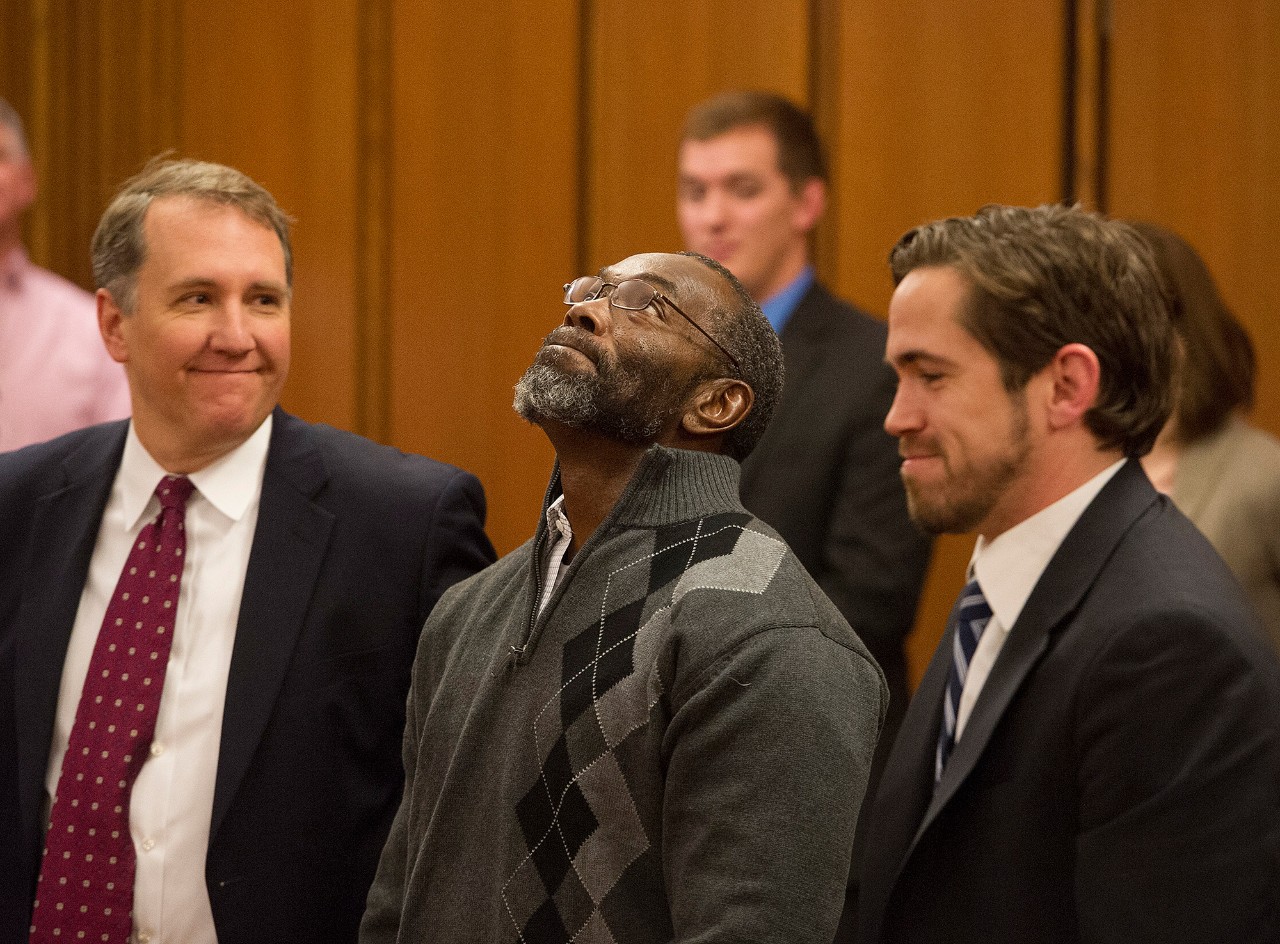
Mark Godsey, pictured in this Associated Press image at left with OIP exoneree Ricky Jackson and OIP Staff Attorney Brian Howe the
moment Jackson was exonerated after serving nearly 40 years in prison for a crime he did not commit.
What readers are saying
"Blind Injustice," set to publish Oct. 10 by the University of California Press, is already earning high praise from reviewers, and is currently ranked No. 1 in Amazon.com's new releases in criminal evidence category.
“The high-stakes work [of exoneration] is costly, time-consuming, and frustrating, and it requires tenacity and compassion to persevere. Mark Godsey has what it takes.”—Time
“A master storyteller, Mark Godsey’s rare triple-perspective of prosecutor, innocence champion, and law professor creates a unique and beautiful voice that not only contributes significantly to the innocence movement but makes the book gripping and hard to put down. A must-read for anyone who cares about justice.”
Richard A. Leo, Hamill Family Professor of Law and Psychology at the University of San Francisco and author of “Police Interrogation and American Justice”
“Mark Godsey’s journey from prosecuting in the storied U.S Attorney’s office in the Southern District of New York to 'innocence lawyer' in his hometown of Cincinnati has yielded an important, candid, and scholarly meditation on the ‘cognitive’ traps that lead to wrongful convictions. This should be mandatory reading for all young federal and state prosecutors, not to mention judges and defense counsel.”
Barry Scheck, Professor of Law at Cardozo School of Law and cofounder of the Innocence Project
“This careful exploration of the psychology of criminal investigations, written in an accessible and conversational tone, exposes how even the best-intentioned officers can get evidence wrong and how we can restore truth to the criminal justice system.”
Brandon Garrett, Professor of Law at the University of Virginia School of Law and author of “Convicting the Innocent: Where Criminal Prosecutions Go Wrong”
“America is in desperate need of heroes, and Mark Godsey, the director and co-founder of the Ohio Innocence Project (OIP) and author of the compelling new book, “Blind Injustice: A Former Prosecutor Exposes the Psychology and Politics of Wrongful Convictions,” is one of the heroes we need now more than ever.
…These are stories that push well beyond inducing tears and chills; they’re stories of humanity serving humanity in ways we seldom observe, with the greatest dual rewards of freedom and justice waiting at the end.”
Bob Cesca, Salon.com
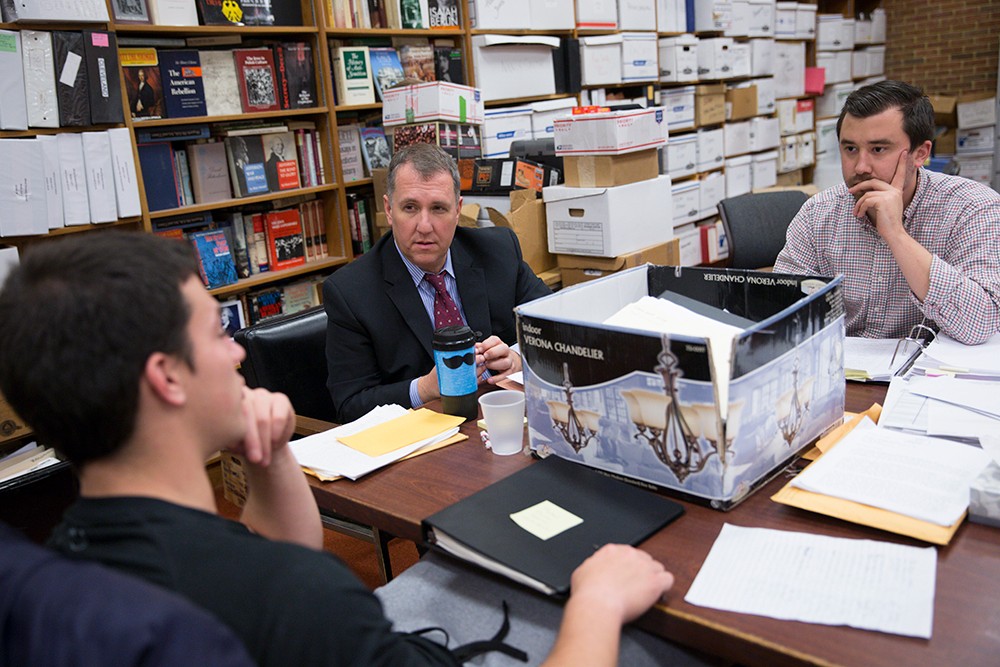
Mark Godsey, professor, UC College of Law, discussing an OIP case with second year law students.
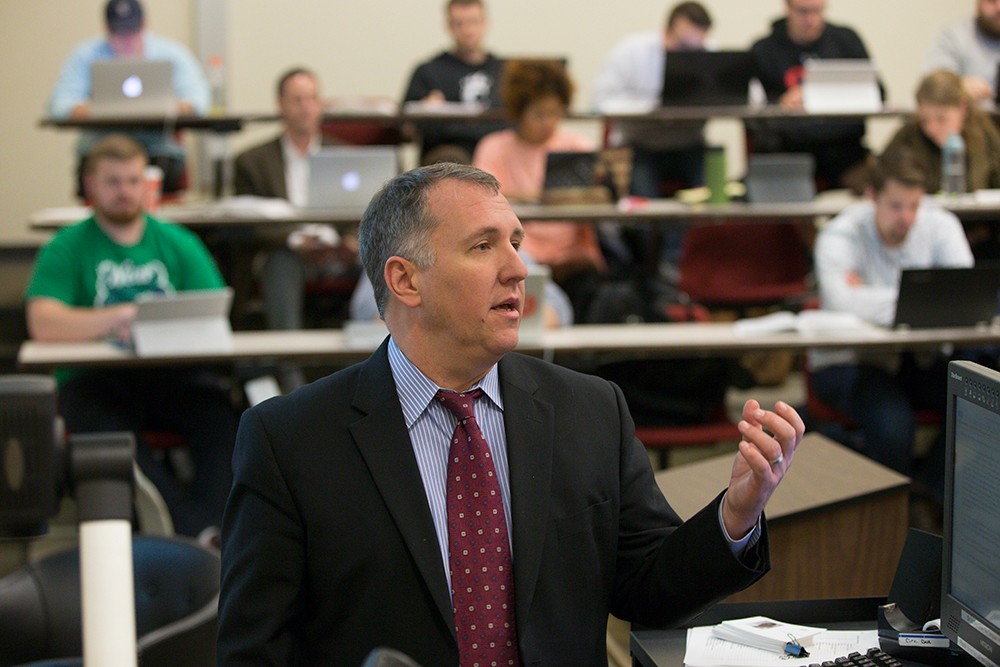
Mark Godsey, professor, UC College of Law, teaching class.
Read an Excerpt from the book
Get Involved with the OIP
- Join the Blind Injustice Facebook group
- Follow the OIP Facebook page
- Join the OIP Mailing List
- Read the Wrongful Convictions blog
OIP in the news
Featured in Time
In an unprecedented honor, Time magazine spotlighted the Ohio Innocence Project in its Feb. 2017 special edition examining wrongful convictions. The issue, “Innocent: The Fight Against Wrongful Convictions,” takes a look at 25 years of the innocence movement. The OIP is highlighted with a multi-page spread.
Record gift expands OIP’s future
A record $15 million bequest by philanthropist Dick Rosenthal will help assure that UC’s Ohio Innocence Project will continue well into the future. He and his late wife, Lois, first established the Lois and Richard Rosenthal Institute for Justice at UC in 2004, which includes the OIP. The latest gift is considered the largest to any innocence project in history.
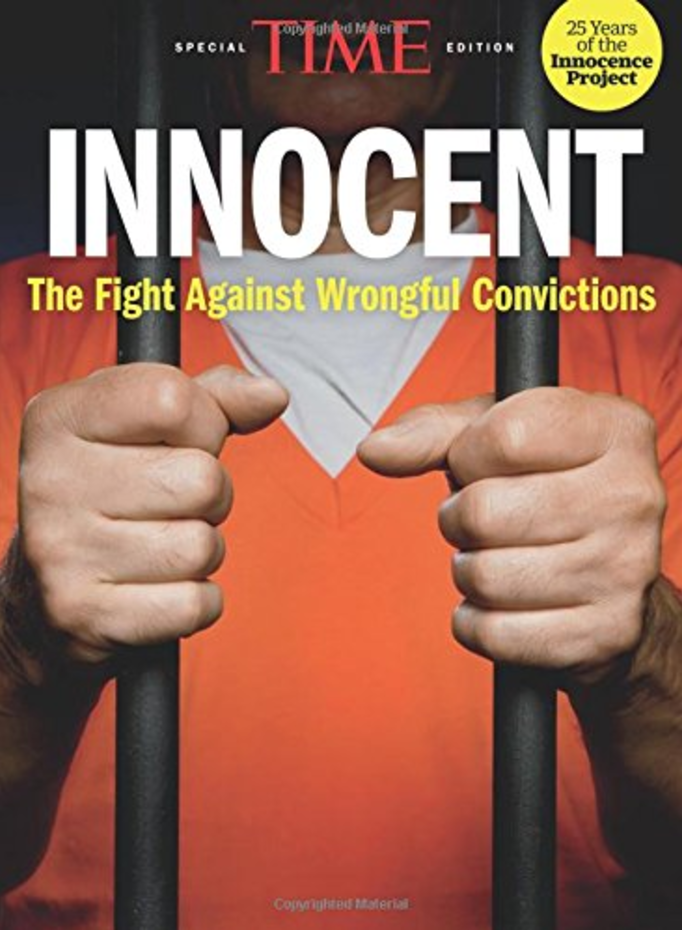
Learn more about the OIP
- UC Magazine: Blind Injustice
- UC Magazine: Ohio Innocence Project at UC advocates for the innocent
- TEDx UCincinnati: A Deeper Look into our Justice System

